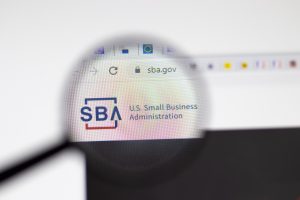8(a) Program Applications Suspended by SBA over Ruling
8/23/2023
The long-standing 8(a) program by the Small Business Administration (SBA) is poised for significant transformations after a court decision challenged the methodology used by an agency to determine a company’s social disadvantage status. The 8(a) Business Development program supports enterprises that are predominantly owned by U.S. citizens who are socially and/or economically disadvantaged to effectively compete within the federal marketplace. Underrepresented minority groups, including Black Americans, Hispanic Americans, Native Americans, Asian Pacific Americans, Subcontinent Asian Americans, and other groups recognized by the SBA, are not required to provide evidence of social disadvantage during the 8(a) program application process.
Last month, the case of Ultima Services Corp. versus the Agriculture Department raised questions about the “rebuttable presumption” approach, which permitted the SBA to admit firms into the 8(a) program without compelling proof of their disadvantaged status. Ultima, not being an 8(a) enterprise, lost a contract when the Agriculture Department deemed them ineligible for the recompete. In contrast, an 8(a) firm received a sole-source contract award. Ultima filed a lawsuit against both the SBA and the Agriculture Department, alleging that their 5th amendment rights to equal protection under the law were violated. Ultima contended that designating its contract as an 8(a) set-aside unjustly discriminated against them.
Judge Clifton Corker, presiding in the U.S. District Court for the Eastern District of Tennessee, ruled in favor of Ultima. The judge stated that both the SBA and Agriculture failed to rigorously scrutinize the decision to assign the Agriculture Department contract to an 8(a) firm. Additionally, it was not established that Ultima was unaffected by the choice to set aside its contract, essentially precluding them from competing for it. The Agriculture Department’s stance was undermined by the fact that one of its contracting officers actively sought an SBA office willing to approve the contract’s 8(a) set-aside designation.
Initially, one office conducted an evaluation and concluded that Ultima would suffer adverse consequences, advising against the change. The contracting officer then approached a different SBA office, which consented to the 8(a) set-aside request. The judge also referenced a recent Supreme Court ruling regarding affirmative action in college admissions, asserting that the SBA had not adequately considered how this ruling influenced its administration of the 8(a) program. While the SBA argued that its 8(a) program adhered to legal precedents, the judge emphasized that the program had not been reevaluated since 1986.
As a result, the SBA has temporarily halted the submission of new 8(a) applications. Presently, there is no indication of an immediate impact on existing socially disadvantaged small businesses enrolled in the 8(a) program. A videoconference involving all parties in the case is scheduled for August 31st to discuss potential remedies, as per the court’s directives.
To find out what companies have recently been added to the 8(a) program, or which are set to graduate soon, visit the Company search in EZGovOpps using the 8(a) Certification Entry/Exit criteria. It’s very handy for teaming purposes. Get started here.

